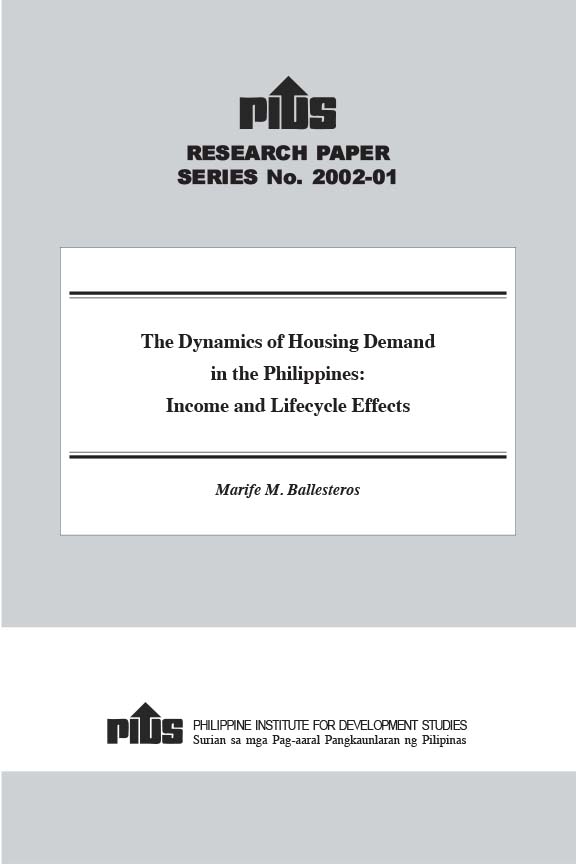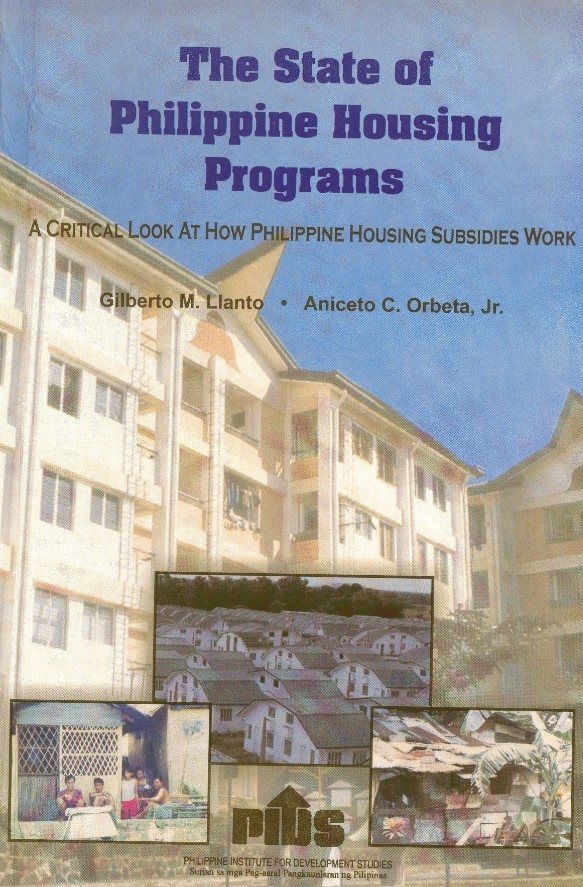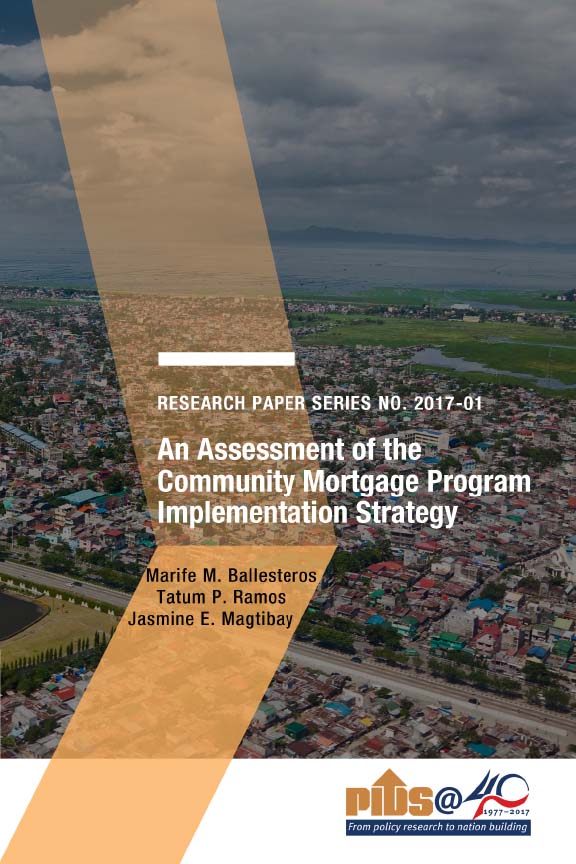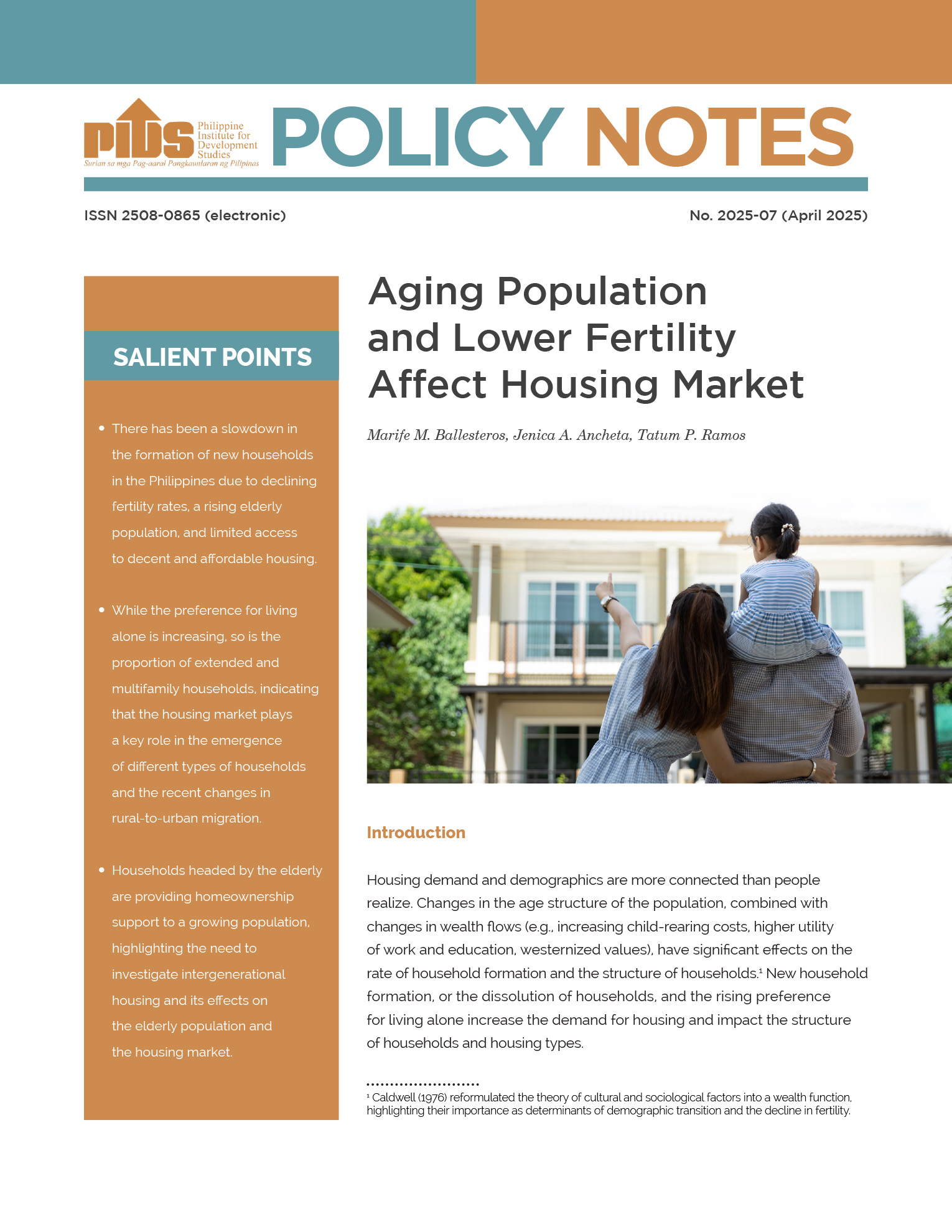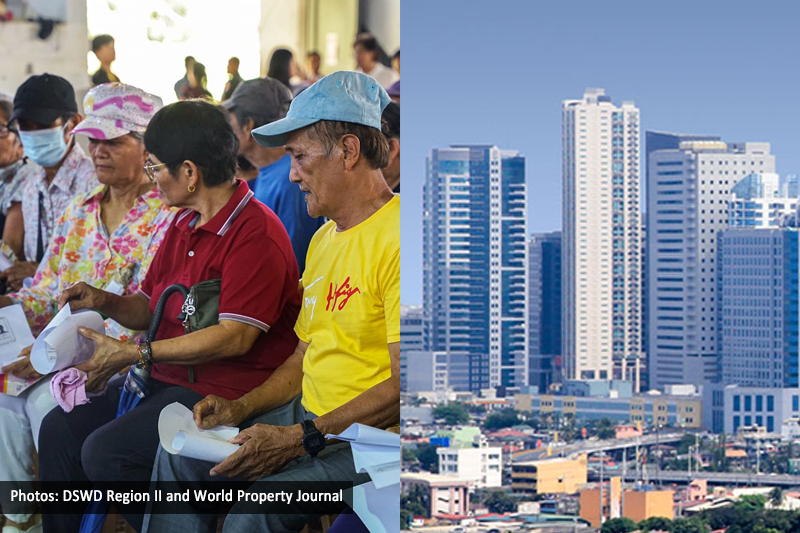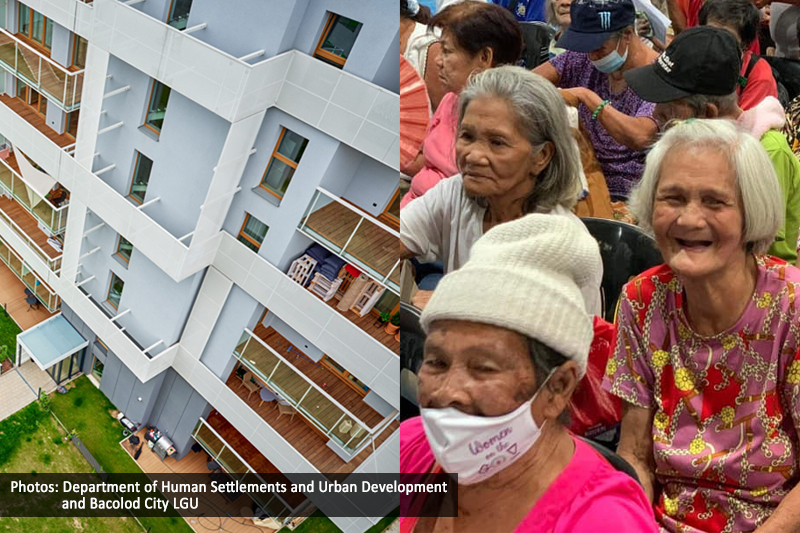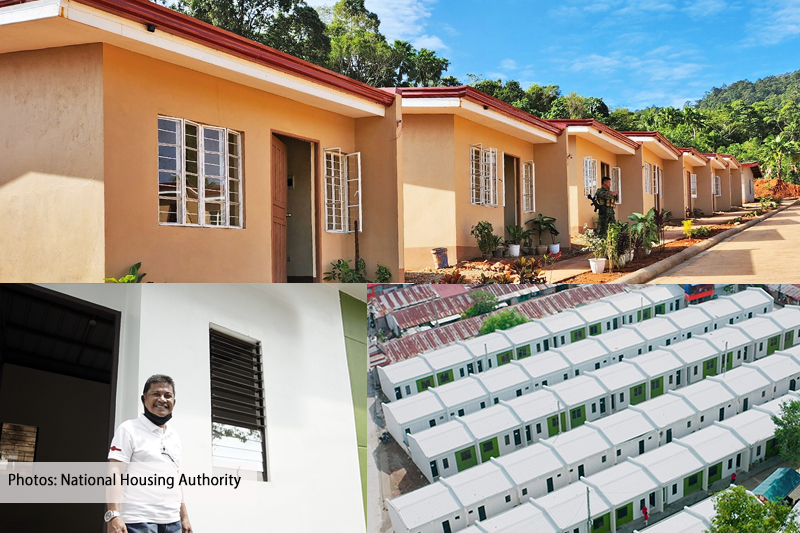This paper examines the housing consumption pattern of Philippine households. Two basic issues are examined: one, how is housing demand associated with income and demographic changes? and two, does the housing consumption pattern of households suggest the presence of significant housing market imperfections or capital market imperfections in the country? The results show that while income is a major factor in housing demand, other factors such as lifecycle, price of housing, and financing availability also affect demand. Estimates of income elasticity show that the demand for housing is highly responsive to a change in income, but housing adjustments are confined to basic improvements in housing facilities with minimal change on tenure. The path toward acceptable housing is constrained due to several factors: first, the ratio of unit housing cost to income is rapidly rising; second, there are few low-cost alternatives to homeownership in the formal market; and third, innovative housing finance is limited and the microfinance schemes available suffer from liquidity problems and bureaucratic delays. Thus, government has to address the problems of housing in a broader context. The issues are not only confined in providing households income transfers through subsidies or in giving access to housing and security of tenure but also in looking at the larger issue of urban development.
Citations
This publication has been cited 10 times
- Andong, Rebeca Fontanilla and Edsel Sajor. 2017. Urban sprawl, public transport, and increasing co2 emissions: The case of metro manila, Philippines. Environment, Development and Sustainability: A Multidisciplinary Approach to the Theory and Practice of Sustainable Development,19, no. 1, 99-123. Springer.
- Ballesteros, Marife M.. 2001. Benefits (and losses) from rent control in the Philippines: An empirical study of metro manila. Discussion Papers DP 2001-23. Philippine Institute for Development Studies.
- Ballesteros, Marife M.. 2003. Benefits (and losses) from rent control in the Philippines: An empirical study of metro manila. Research Paper Series RPS 2002-09. Philippine Institute for Development Studies.
- Cruz, Prince Christian R. 2008. Transaction costs and housing affordability in Asia. International Real Estate Review, 11, no. 1, 128-150. Global Social Science Institute.
- Dasgupta,Basab, Somik V. Lall, and Nancy Lozano Gracia. 2014. Urbanization and housing investment. Policy Research Working Paper Series 7110. The World Bank. .
- Debuque-Gonzales, Margarita. 2013. Empirical determinants and patterns of research and development investment in Asia. ADB Economics Working Paper Series 364. Asian Development Bank.
- Doling, John, Paul Vandenberg, and Jade Tolentino. 2013. Housing and housing finance—a review of the links to economic development and poverty reduction. ADB Economics Working Paper Series 362. Asian Development Bank.
- Eva, Deuchert and Christina Felfe. 2015. The tempest: Short- and long-term consequences of a natural disaster for children׳s development. European Economic Review, 80(C), 280-294. Elsevier.
- Himanshu. 2013. Poverty and Food Security in India. ADB Economics Working Paper Series 369. Asian Development Bank.
- Roidoung, Phanida. 2013. Factors of housing decisions for low and middle-income households in the greater Bangkok area. The Empirical Econometrics and Quantitative Economics Letters, 2, no. 3, 13-26. Faculty of Economics, Chiang Mai University.

